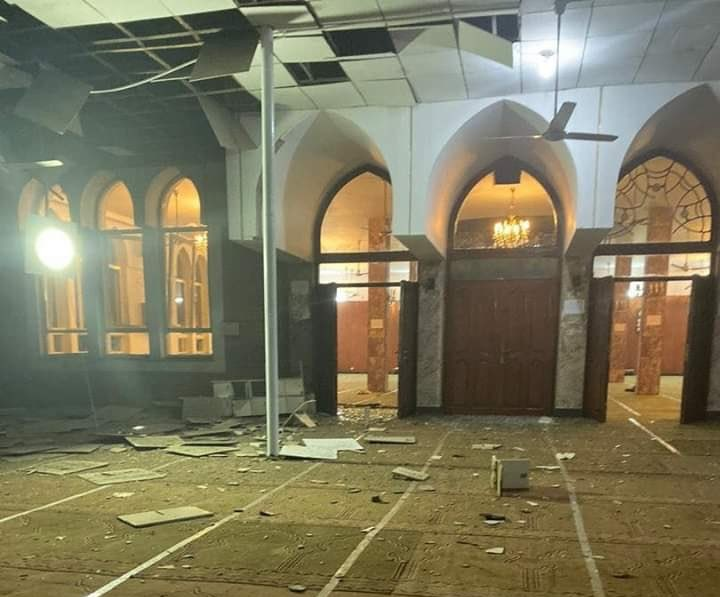Critics and citizens in Afghanistan on Wednesday voiced strong criticism about the security strategy of the Afghan security institutions hours after a bomb exploded inside Wazir Akbar Khan mosque, which is located in a highly fortified area of Kabul. At least two people were killed, including the mosque’s imam Mohammad Ayaz Niazi, and eight others were wounded.
War-weary Afghans said that the country’s security organs should have prevented such a targeted killing.
They also called on the Minister of Interior and district police chief to step down.
The explosion happened at Wazir Akbar Khan mosque in downtown Kabul on Tuesday evening, according to a statement by the Ministry of Interior Affairs.
The Ministry of Interior has pledged to share the outcome of its investigation into the attack as soon as possible.
Eyewitnesses share ordeal:
“I saw the honorable Dr. (Ayazi) falling on the ground, I became despondent and lost my strength,” said Faqir Mohammad, an eye witness.
“What are the security organs doing?” asked Basheer Ibrahim, a resident in Kabul.
“What kind of security is this? The security organs should feel shame, they must die,” said Tahir Khan, a resident in Kabul.
“The Minister of Interior said that he will fire district police chiefs if a high profile resident is assassinated, but why has he not fired the PD10 police chief?” asked Noor Rahman, a resident in Kabul.
“This indicates the weakness of the security institutions and poor management of the Ministry of Interior and all the people are aware of it,” said Zia Yaftali, a member of parliament.
“It is very shameful when an attack on such a scale happens only two kilometers away from the presidential palace. The minister of interior and the district police chief should step down,” said Abdul Qader Farooqi, a resident in Kabul.
Niazi was born in 1964 in Yemgan district of northeastern Badakhshan province.
He graduated from Al-Azhar University in Cairo, Egypt, and specialized in the study of Islamic economy. He also earned a doctorate in international relations in Islamic jurisprudence.
After he returned from Egypt, he started as a professor at Kabul University and also was an imam at Wazir Akbar Khan mosque.











